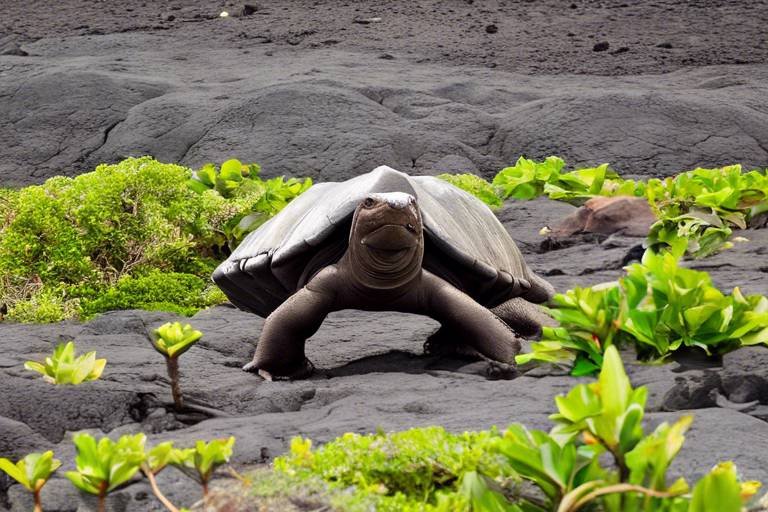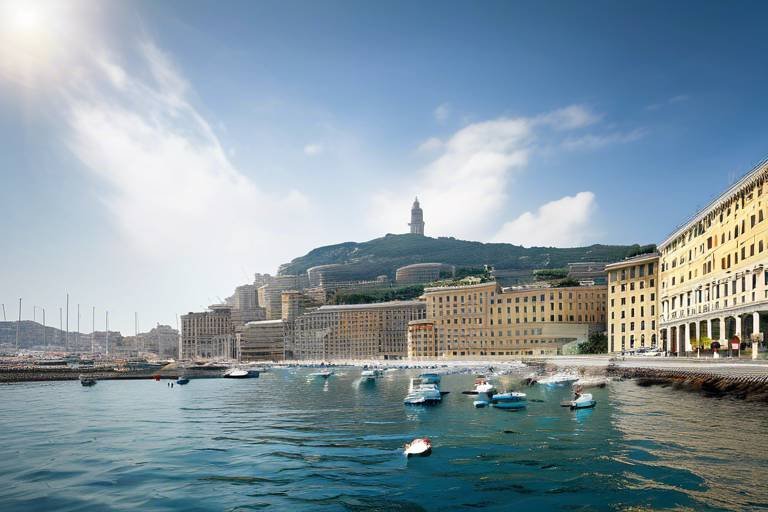Sustainable Tourism Tips for Exploring the Galápagos Islands
When exploring the Galápagos Islands, it’s crucial to adopt sustainable tourism practices that help preserve the unique ecosystem of this remarkable destination. By following these tips, you can minimize your impact on the environment and contribute to the conservation efforts that safeguard the natural beauty of the Galápagos.
Respecting wildlife and nature is paramount during your visit to the Galápagos. By maintaining a safe distance from wildlife, sticking to designated trails, and obeying park rules, you play a vital role in protecting the natural habitats and species that call these islands home.
Choosing eco-friendly accommodation options can further support sustainable tourism on the Galápagos Islands. Look for eco-lodges or hotels with green certifications that prioritize sustainability, allowing you to enjoy your stay while minimizing your environmental footprint.
Single-use plastics pose a significant threat to the Galápagos ecosystem. To combat this, bring reusable water bottles, bags, and straws on your trip. Proper waste disposal is essential to keeping the islands pristine and free of plastic pollution.
Supporting local conservation initiatives is a meaningful way to give back to the Galápagos community. Whether through eco-friendly tours, volunteering opportunities, or donations to conservation projects, you can actively contribute to preserving the unique biodiversity of the islands.
Respecting the cultural heritage of the Galápagos is equally important. Take the time to learn about the islands’ rich history, honor local traditions, and support indigenous communities. Sustainable tourism should benefit both nature and people, fostering a harmonious relationship between visitors and residents.
When engaging in snorkeling and diving activities, practice responsible behavior to protect the marine environment. Follow guidelines to avoid damaging coral reefs and marine life, and choose operators committed to marine conservation and sustainable practices in the Galápagos.
Using biodegradable sunscreen is a simple yet impactful way to safeguard both your skin and the delicate ecosystems of the Galápagos. Opt for sunscreen free of harmful chemicals to ensure that your sun protection products do not harm the marine life that thrives in these waters.
Responsible waste management is key to preserving the natural beauty of the Galápagos. Dispose of waste properly, prioritize recycling whenever possible, and participate in beach clean-up activities to help maintain the cleanliness of the beaches and waters surrounding the islands.
Respect Wildlife and Nature
Discover how to travel responsibly and preserve the unique ecosystem of the Galápagos Islands through these sustainable tourism tips. Learn how to minimize your impact on the environment and support conservation efforts during your visit.
When exploring the Galápagos Islands, it’s crucial to respect the wildlife and nature that call this archipelago home. By maintaining a safe distance from animals, you not only ensure your safety but also protect the natural behaviors and habitats of the unique species found here. Following designated trails helps prevent trampling of delicate vegetation and nesting sites, preserving the island’s ecosystem for future generations. Additionally, adhering to park rules and guidelines set by the Galápagos National Park ensures that your visit minimizes disturbance and maximizes conservation efforts.
Choose Eco-Friendly Accommodation
When visiting the Galápagos Islands, one of the key aspects of sustainable tourism is choosing eco-friendly accommodation. By selecting lodging options that prioritize sustainability, visitors can actively support environmentally conscious practices that benefit the local environment and community.
These eco-friendly accommodations often go beyond basic environmental regulations and strive to minimize their carbon footprint through various initiatives. From using renewable energy sources to implementing water-saving measures, these establishments are dedicated to reducing their impact on the delicate ecosystem of the Galápagos Islands.
Additionally, eco-friendly accommodations may also support local conservation efforts and community projects, further contributing to the preservation of the unique biodiversity of the islands. By staying at such establishments, travelers can directly participate in sustainable tourism practices and make a positive difference during their visit.
Reduce Single-Use Plastics
When it comes to sustainable tourism in the Galápagos Islands, one crucial aspect to consider is how to reduce single-use plastics. These disposable plastic items pose a significant threat to the delicate ecosystem of the islands, impacting marine life and polluting the pristine environment. By taking simple yet effective steps to minimize plastic waste, visitors can play a vital role in preserving the natural beauty of the Galápagos for future generations.
One of the most practical ways to reduce single-use plastics is by bringing reusable items such as water bottles, bags, and straws. By opting for reusable alternatives, travelers can significantly decrease their plastic footprint during their stay on the islands. Additionally, properly disposing of any plastic waste generated is essential to prevent littering and contamination of the land and sea.
Choosing eco-friendly products and packaging can also contribute to reducing single-use plastics in the Galápagos. When shopping for souvenirs or snacks, look for items that are packaged in biodegradable or recyclable materials. Supporting businesses that prioritize sustainable practices and offer plastic-free options can help drive positive change in the local economy.
Participating in beach clean-up activities is another proactive way to combat plastic pollution in the Galápagos. Joining organized clean-up efforts or simply picking up trash while exploring the beaches can make a tangible difference in keeping the shores free of plastic debris. By taking collective action, visitors can actively contribute to the conservation of this unique archipelago.
Support Local Conservation Initiatives
Supporting local conservation initiatives in the Galápagos Islands is crucial for preserving the unique biodiversity and delicate ecosystems of this remarkable destination. By actively participating in eco-friendly tours, volunteering with environmental organizations, or donating to projects dedicated to conservation efforts, visitors can make a tangible impact on the protection of this natural wonder.
One way to support local conservation initiatives is by joining guided tours that focus on environmental education and sustainable practices. These tours not only provide valuable insights into the conservation challenges faced by the Galápagos but also contribute directly to funding ongoing protection efforts.
Volunteering with local conservation organizations offers a hands-on opportunity to engage in meaningful work, such as habitat restoration, wildlife monitoring, or beach clean-ups. By dedicating your time and energy to these initiatives, you can actively contribute to the preservation of the islands’ fragile ecosystems.
Another way to support conservation is by donating to reputable projects that aim to safeguard the Galápagos’ natural heritage. Whether it’s supporting reforestation programs, marine conservation projects, or wildlife protection initiatives, every contribution helps in ensuring the long-term sustainability of this iconic destination.
Furthermore, engaging with local communities and indigenous groups is essential for promoting sustainable tourism practices that benefit both nature and people. By respecting local traditions, supporting cultural heritage initiatives, and purchasing locally made products, visitors can help foster a harmonious relationship between tourism and conservation in the Galápagos.
Respect Cultural Heritage
Discover how to travel responsibly and preserve the unique ecosystem of the Galápagos Islands through these sustainable tourism tips. Learn how to minimize your impact on the environment and support conservation efforts during your visit.
Understand the importance of maintaining a safe distance from wildlife, following designated trails, and adhering to park rules to protect the natural habitats and species in the Galápagos.
Find accommodations that prioritize sustainability, such as eco-lodges or hotels with green certifications, to support environmentally conscious tourism practices on the islands.
Minimize plastic waste by bringing reusable water bottles, bags, and straws, and disposing of waste properly to keep the Galápagos pristine and free of plastic pollution.
Contribute to local conservation efforts by participating in eco-friendly tours, volunteering with environmental organizations, or donating to projects that protect the unique biodiversity of the Galápagos.
When exploring the Galápagos Islands, it is essential to immerse yourself in the cultural heritage of the region. By learning about the cultural history of the islands, you not only gain a deeper appreciation for the destination but also contribute to the preservation of local traditions. Respect the customs and practices of indigenous communities, support local artisans, and engage in cultural activities that promote sustainable tourism practices. By respecting the cultural heritage of the Galápagos, you help ensure that both nature and people benefit from responsible travel.
Follow guidelines for snorkeling and diving to avoid damaging coral reefs and marine life, and choose operators that prioritize marine conservation and sustainable practices in the Galápagos.
Protect your skin and the marine environment by using biodegradable sunscreen that is free of harmful chemicals, ensuring that your sun protection products do not harm the delicate ecosystems of the Galápagos.
Dispose of waste properly, recycle whenever possible, and participate in beach clean-up activities to help keep the beaches and waters of the Galápagos clean and preserve the natural beauty of the islands.
Practice Responsible Snorkeling and Diving
When it comes to snorkeling and diving in the Galápagos Islands, practicing responsible and sustainable behavior is crucial for preserving the marine ecosystems. By following guidelines and choosing operators that prioritize marine conservation, visitors can enjoy these activities while minimizing their impact on the delicate underwater environment.
One essential aspect of responsible snorkeling and diving is to avoid touching or disturbing marine life and coral reefs. These fragile ecosystems can be easily damaged by human contact, so maintaining a safe distance and observing from afar is key to protecting them for future generations.
Additionally, choosing eco-friendly snorkeling and diving operators who follow sustainable practices is important. These operators often provide educational briefings on how to interact with marine life responsibly and may have initiatives in place to reduce their environmental footprint, such as using biodegradable cleaning products on their boats.
Proper waste management is also crucial while snorkeling and diving. Ensuring that any trash or waste is properly disposed of on the boat and not thrown into the ocean helps to keep the waters clean and free of pollution. Participating in beach clean-up activities during your visit can also make a positive impact on the marine environment.
Use Biodegradable Sunscreen
Discover how to travel responsibly and preserve the unique ecosystem of the Galápagos Islands through these sustainable tourism tips. Learn how to minimize your impact on the environment and support conservation efforts during your visit.
When exploring the pristine waters of the Galápagos Islands, it’s essential to protect your skin from the sun’s rays. However, traditional sunscreens can contain harmful chemicals that can damage the delicate marine ecosystems. By opting for biodegradable sunscreen, you can ensure that your sun protection products do not harm the environment.
Responsible Waste Management
Discover how to travel responsibly and preserve the unique ecosystem of the Galápagos Islands through these sustainable tourism tips. Learn how to minimize your impact on the environment and support conservation efforts during your visit.
Understand the importance of maintaining a safe distance from wildlife, following designated trails, and adhering to park rules to protect the natural habitats and species in the Galápagos.
Find accommodations that prioritize sustainability, such as eco-lodges or hotels with green certifications, to support environmentally conscious tourism practices on the islands.
Minimize plastic waste by bringing reusable water bottles, bags, and straws, and disposing of waste properly to keep the Galápagos pristine and free of plastic pollution.
Contribute to local conservation efforts by participating in eco-friendly tours, volunteering with environmental organizations, or donating to projects that protect the unique biodiversity of the Galápagos.
Learn about the cultural history of the islands, respect local traditions and customs, and support indigenous communities to promote sustainable tourism that benefits both nature and people.
Follow guidelines for snorkeling and diving to avoid damaging coral reefs and marine life, and choose operators that prioritize marine conservation and sustainable practices in the Galápagos.
Protect your skin and the marine environment by using biodegradable sunscreen that is free of harmful chemicals, ensuring that your sun protection products do not harm the delicate ecosystems of the Galápagos.
Proper waste management is crucial for preserving the pristine beauty of the Galápagos Islands. By disposing of waste properly, recycling whenever possible, and participating in beach clean-up activities, visitors can contribute to keeping the beaches and waters clean. Responsible waste management not only helps protect the environment but also ensures the sustainability of the islands for future generations.
Have questions about sustainable tourism in the Galápagos Islands? Check out some common queries below:
- What are some ways to support local conservation efforts while visiting the Galápagos?
- How can I minimize my environmental impact during activities like snorkeling and diving?
- Why is it important to choose eco-friendly accommodation options?
- What role does cultural heritage play in sustainable tourism practices?
Frequently Asked Questions
- What is sustainable tourism?
Sustainable tourism refers to a responsible way of traveling that aims to minimize the negative impact on the environment, preserve cultural heritage, and support local communities. It involves making conscious choices to protect natural resources and promote the well-being of both the destination and its inhabitants.
- How can I contribute to conservation efforts in the Galápagos Islands?
You can support conservation initiatives in the Galápagos by choosing eco-friendly accommodations, participating in eco-friendly tours, volunteering with local environmental organizations, and donating to projects that protect the unique biodiversity of the islands. By engaging in these activities, you can help preserve the natural beauty and ecological balance of the Galápagos.
- Why is it important to use biodegradable sunscreen in the Galápagos?
Using biodegradable sunscreen is crucial in the Galápagos to protect the delicate marine ecosystems from harmful chemicals. Conventional sunscreens contain ingredients that can harm coral reefs and marine life, so opting for biodegradable options helps to safeguard the underwater environment while still providing sun protection for yourself.
- How can I practice responsible snorkeling and diving in the Galápagos?
To engage in responsible snorkeling and diving in the Galápagos, follow guidelines provided by tour operators, avoid touching or disturbing marine life, and choose operators that prioritize marine conservation and sustainable practices. By being mindful of your impact on the underwater world, you can help preserve the marine biodiversity of the Galápagos.
Sustainable, Tourism, Tips, Galápagos Islands, Explore, Responsible, Conservation, Wildlife, , Sustainable, Tourism, Tips, Galápagos Islands, Explore, Responsible, Conservation, Wildlife,
Share this content:














Post Comment